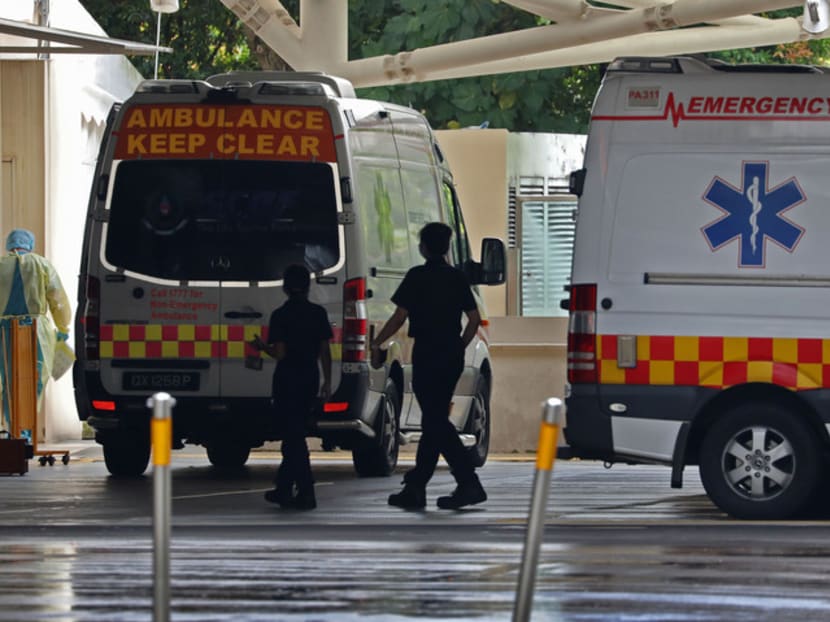Covid-19 Omicron wave subsiding, but emergency departments still overloaded: Ong Ye Kung
SINGAPORE — The wave of the Covid-19 Omicron strain peaked in late February and is subsiding, falling from a peak seven-day moving average of more than 18,000 daily cases to around 16,000 in the past week, Health Minister Ong Ye Kung said.

SINGAPORE — The wave of the Covid-19 Omicron strain peaked in late February and is subsiding, falling from a peak seven-day moving average of more than 18,000 daily cases to around 16,000 in the past week, Health Minister Ong Ye Kung said.
In a media statement on Friday (March 11), the Ministry of Health (MOH) said that the number of hospitalised cases has also started to fall from a peak of 1,726 to 1,450.
In an update at a press conference held by the national Covid-19 task force, Mr Ong said that the week-on-week infection ratio of new cases has gone down to 0.93, while the reproduction rate is about 1.0 for now.
The hope is that the reduction in daily caseload will continue in the coming days, he added.
“I'm glad that today, there's widespread acceptance by our population — that what is important is not so much the daily caseload, but how that daily caseload translates into hospitalisation and illness severity and then impacts our healthcare system,” he said.
MOH said in its statement that the incidence of severe illness continues to be significantly lower than during the infection wave caused by the Delta coronavirus strain.
In the past 28 days, 0.04 per cent and 0.2 per cent of community cases here required intensive care or oxygen aid respectively.
Mr Ong said: “As of now, public hospital polyclinics and general practitioner clinics have been, and are still, very busy. And healthcare workers have been coming under significant stress.
"Fortunately, the ICU (intensive care unit) utilisation rate is well within the capacity… to (treat) patients who need oxygen supplementation.”
However, he stressed that emergency departments continue to be “overloaded”, even though the number of people visiting these departments has come down.
“It used to be 3,000 cases a day attended to in our public hospitals, and that has dropped to 2,800 cases a day… It is still a very high number.”
To support the hospitals, MOH has stepped up various efforts to beef up manpower for public health institutions with the help of the Singapore Armed Forces as well as nursing students who are undergoing advanced diploma training, Mr Ong said as he thanked them for their help.
TRANSFERRING PATIENTS FROM PUBLIC HOSPITALS
More patients from public hospitals will be transferred to other care settings, such as private hospitals, by raising the risk profile for the kind of patients they can take in, Mr Ong said.
The authorities have also been raising the number of transfers from public hospitals to Covid-19 treatment facilities, which were previously only 10 to 20 per cent occupied, he added.
Now, these facilities are around 50 to 60 per cent occupied as a result of the changes.
“Where possible, hospitals will also provide home care instead of hospital care and give the family support so that the patient can recover at home," he said.
"We also partner various stakeholders to reduce emergency department admissions, such as (how) the Singapore Civil Defence Force may now take clinically stable patients directly to Covid-19 treatment facilities rather than to public hospitals.''
The authorities will also start to divert non-Covid-19 cases from public hospitals to private hospitals and the Covid-19 treatment facilities. These are non-Covid-19 patients who are stable and require monitoring and management of their chronic conditions, he added.
MOH said: “Our healthcare workers continue to face a heavy workload. Hence, we urge everyone to continue exercising personal responsibility.”






